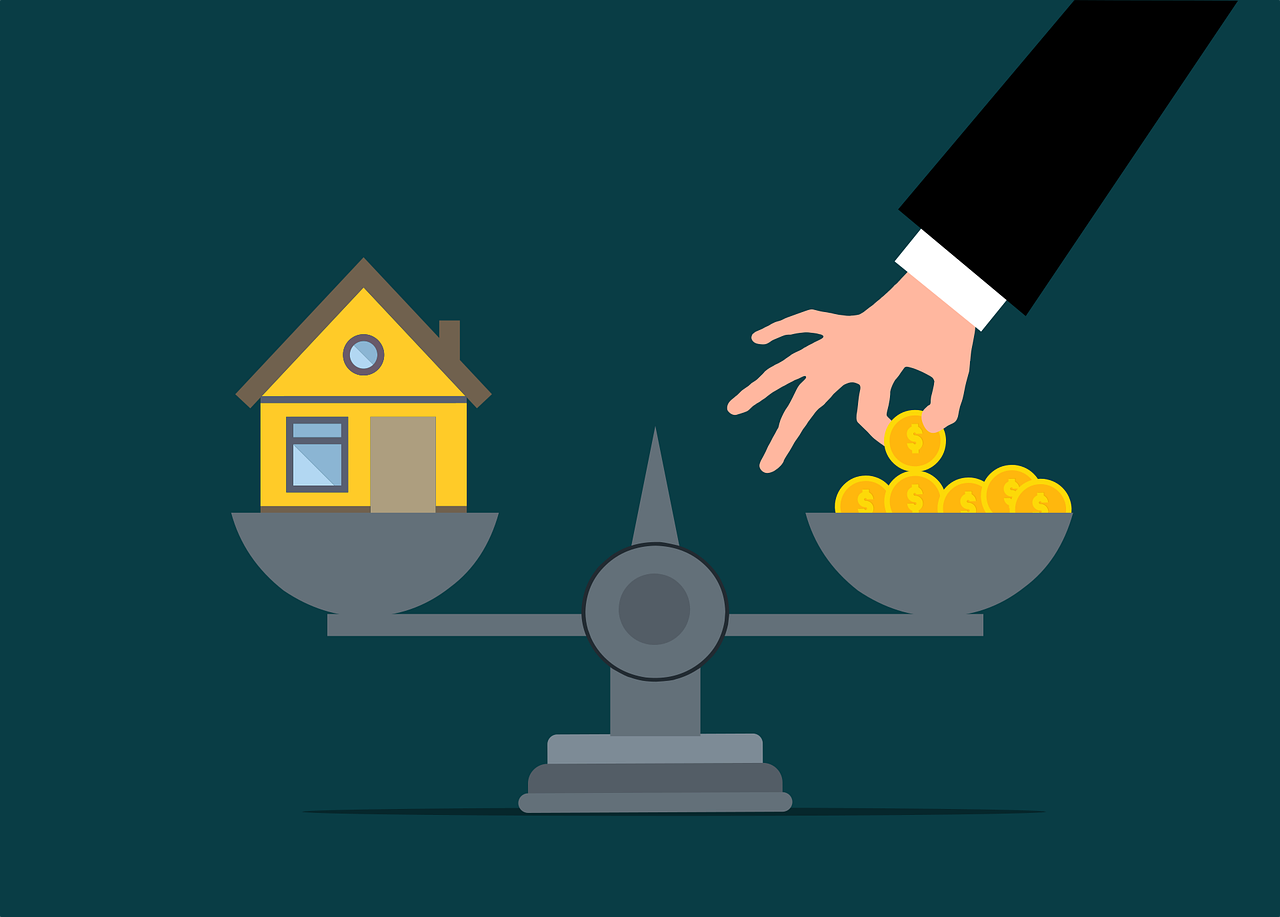Introduction
Your credit score plays a pivotal role in securing a favorable mortgage rate. Lenders use it to assess your creditworthiness, determining the interest rate you’ll receive on your home loan. Therefore, if you’re planning to buy a house or refinance your current mortgage, taking steps to boost your credit score can save you a substantial amount of money in the long run.
“Your credit score is not just a number; it’s a financial key that can unlock significant savings when it comes to securing a mortgage. The impact of your credit score on your mortgage rate cannot be overstated, and understanding how to leverage it to your advantage is essential for any aspiring homeowner or someone looking to refinance their current mortgage. Here’s an in-depth exploration of the pivotal role your credit score plays and how improving it can translate into substantial long-term savings:
Interest Rate Determination: Lenders rely on your credit score to gauge your creditworthiness. It helps them assess the level of risk associated with lending to you. A higher credit score typically signals a lower credit risk, which, in turn, allows lenders to offer more favorable interest rates on your mortgage.
Cost of Borrowing: The difference in interest rates between borrowers with excellent credit scores and those with lower scores can be significant. Even a fraction of a percentage point variance in your mortgage rate can result in substantial savings over the life of your loan. Lower interest rates mean lower monthly payments and reduced overall borrowing costs.
Long-Term Savings: The savings generated by a higher credit score extend far beyond the initial years of homeownership. Mortgages are long-term financial commitments, often spanning 15 to 30 years. Over this duration, even a modest reduction in your interest rate can amount to tens of thousands of dollars in savings.
Improved Loan Terms: A strong credit score can also lead to improved loan terms beyond just lower interest rates. It can influence factors like the size of your down payment requirement, the type of mortgage you qualify for, and whether you’ll need to pay private mortgage insurance (PMI). All of these factors can significantly impact your overall homeownership expenses.
Qualification for Special Programs: Many mortgage programs, such as government-backed loans or first-time homebuyer programs, offer more favorable terms to borrowers with excellent credit. A higher credit score can make you eligible for these programs, providing access to additional savings and benefits.
Reduced Risk of Loan Denial: A strong credit score not only helps you secure better terms but also reduces the risk of loan denial. Lenders may be more willing to approve your mortgage application if you have a high credit score, ensuring that your homeownership plans proceed without hurdles.
Opportunities for Refinancing: If you’re already a homeowner, an improved credit score can open doors to mortgage refinancing. Refinancing at a lower interest rate can lead to lower monthly payments and significant savings over the remaining life of your loan.
Long-Term Financial Health: Focusing on improving your credit score isn’t just about securing a better mortgage rate; it’s a fundamental step toward long-term financial health. A higher credit score can lead to better financial opportunities, lower borrowing costs for future loans, and improved access to credit.
Credit Management Strategies: Enhancing your credit score involves responsible financial management, including paying bills on time, reducing credit card balances, and minimizing new credit applications. These practices not only boost your credit score but also foster sound financial habits.
Professional Guidance: If you’re unsure about how to improve your credit score, consider seeking guidance from a credit counselor or financial advisor. They can provide personalized strategies to help you build and maintain a strong credit profile.
In conclusion, your credit score is a financial lever that can profoundly impact your homeownership journey. A higher credit score opens doors to lower interest rates, reduced borrowing costs, and a more secure financial future. Whether you’re a first-time homebuyer or an existing homeowner, investing in improving your credit score is a wise and financially rewarding decision.”
Explore this link for a more extensive examination of the topic: Regulation Z Truth in Lending Introduction Background and Summary
In this article, we’ll explore actionable strategies to help you improve your credit score and increase your chances of securing a better mortgage rate.
Improving your credit score is a crucial step toward obtaining a favorable mortgage rate. A higher credit score not only opens doors to better loan terms but also reflects your financial responsibility and creditworthiness. To achieve this, it’s important to understand how your credit score is calculated and take deliberate steps to enhance it. In this article, we’ll delve into the factors that influence your credit score and provide practical strategies to boost it, ultimately increasing your chances of securing a more advantageous mortgage rate.
You can also read more about this here: The mortgage rate you get depends partly on your credit score …

The first step in improving your credit score is to obtain a copy of your credit report from the major credit bureaus—Equifax, Experian, and TransUnion. Review your report for errors, inaccuracies, or fraudulent activity. If you spot any discrepancies, promptly dispute them to ensure your credit history is accurate.
“Additionally, you can establish good credit habits by making payments on time, reducing outstanding debt, and not maxing out your credit cards. Over time, these responsible financial behaviors can lead to a higher credit score and open up opportunities for better financial products and lower interest rates.”
Don’t stop here; you can continue your exploration by following this link for more details: How to Get Your Credit Ready for a Mortgage – Experian

Consistently paying your bills on time is one of the most significant factors influencing your credit score. Delinquent payments can have a detrimental effect on your creditworthiness. Set up reminders or automatic payments to ensure you never miss a due date.
“Punctuality in bill payments is a cornerstone of maintaining a healthy credit score and financial well-being. The impact of timely payments on your creditworthiness cannot be overstated, and the consequences of delinquency are something to be avoided. Here’s a closer look at why this practice is vital and how you can ensure you never miss a due date:
Credit Score Influence: Payment history is a dominant factor in determining your credit score. It accounts for a significant portion of your score and is often the first aspect lenders review when assessing your creditworthiness. Consistently paying bills on time positively influences your credit score, reflecting your reliability as a borrower.
Risk of Delinquency: Delinquent payments, on the other hand, can have severe repercussions. Even a single late payment can lead to a drop in your credit score, making it more challenging to secure favorable loan terms in the future. Moreover, missed payments may result in late fees, penalty interest rates, and damage to your creditor relationships.
Long-Term Consequences: Late payments can linger on your credit report for up to seven years. This means that even a one-time slip-up can haunt your credit history for an extended period. It’s crucial to maintain a consistent track record of on-time payments to mitigate the long-term consequences of late payments.
Interest Savings: Timely payments not only protect your credit but also help you save money. When you pay your credit card balances in full and on time, you avoid accruing interest charges. Similarly, prompt payments on loans, such as mortgages or auto loans, reduce the overall interest you pay over the life of the loan.
Collections and Legal Actions: Continued delinquency can lead to accounts being sent to collections agencies or result in legal actions, such as wage garnishments or liens. These outcomes can have a devastating impact on your financial stability and credit standing.
To ensure you never miss a due date, consider the following proactive steps:
Set Up Reminders: Use digital tools like calendar alerts or mobile apps to set up payment reminders. These notifications can help you stay organized and ensure you never forget a due date.
Automatic Payments: Explore the option of automatic payments through your bank or creditors. Setting up automatic withdrawals ensures that your bills are paid on time, without requiring manual intervention.
Budget Planning: Create a comprehensive budget that outlines your monthly expenses and income. This will give you a clear picture of when bills are due and how much you need to allocate for each payment.
Emergency Fund: Maintain an emergency fund to cover unexpected expenses or temporary financial setbacks. Having this financial cushion can prevent you from missing payments during challenging times.
Regular Check-Ins: Periodically review your financial accounts to confirm that payments have been processed correctly and that no discrepancies or issues have arisen.
In conclusion, paying your bills on time is a fundamental practice that safeguards your creditworthiness and financial stability. It is a simple yet effective way to bolster your credit score, reduce financial stress, and position yourself for future financial opportunities.”
To expand your knowledge on this subject, make sure to read on at this location: How to Improve Your Credit Score Fast – Experian

High credit card balances relative to your credit limit, also known as credit utilization, can negatively impact your credit score. Aim to keep your credit utilization below 30% for each credit card to demonstrate responsible credit management.
“Responsible credit management is crucial for a healthy credit score. Maintain a credit utilization rate below 30% on each card to boost your financial standing.”
For additional details, consider exploring the related content available here How to Get Your Credit Ready for a Mortgage – Experian

Each time you apply for a new credit account, a hard inquiry is made on your credit report. Multiple hard inquiries within a short period can lower your credit score. Avoid opening unnecessary credit accounts, especially in the months leading up to your mortgage application.
“Each time you apply for a new credit account, a hard inquiry is made on your credit report. Multiple hard inquiries within a short period can lower your credit score. Avoid opening unnecessary credit accounts, especially in the months leading up to your mortgage application. Keeping your credit inquiries to a minimum will help you maintain a healthy credit score and improve your chances of securing a favorable mortgage rate.”
For a comprehensive look at this subject, we invite you to read more on this dedicated page: How Having Multiple Credit Cards Affects Your Credit Score

The length of your credit history is another essential factor in your credit score calculation. Closing old credit accounts can shorten your credit history, potentially lowering your score. Keep older, well-managed accounts open to maintain a positive credit history.
Maintaining a healthy credit history is crucial for a strong credit score. The length of your credit history plays a significant role in this. Closing old credit accounts can have a detrimental effect, potentially shortening your credit history and leading to a lower score. It’s advisable to keep older, well-managed accounts open, as they contribute positively to your credit history. These established accounts demonstrate your ability to manage credit responsibly over time, which is viewed favorably by creditors and can help bolster your creditworthiness. This prudent approach to credit
Additionally, you can find further information on this topic by visiting this page: Is Closing A Credit Card Bad? | Bankrate

Having a mix of different types of credit accounts, such as credit cards, installment loans, and a mortgage, can positively impact your credit score. However, only open new credit accounts when necessary and manageable.
Maintaining a well-rounded credit profile is not only about having different types of credit but also about responsible management. Here are some additional strategies to help boost your credit score and secure a better mortgage rate:
Timely Payments: Pay your bills on time, every time. Late payments can have a significant negative impact on your credit score.
Reduce Debt: Work on paying down existing debt, particularly credit card balances. High credit card utilization can harm your credit score.
Avoid Closing Credit Accounts: Closing old credit accounts can affect your credit utilization ratio and the length of your credit history. If you have a long-standing account in good standing, consider keeping it open.
Dispute Errors: Regularly review your credit reports for inaccuracies. If you find any errors, dispute them with the credit bureaus to have them corrected.
Limit Credit Applications: Applying for multiple credit accounts within a short period can lower your credit score. Each application results in a hard inquiry on your credit report.
Keep Your Balances Low: Aim to keep your credit card balances well below your credit limits. High balances relative to your limits can negatively impact your credit score.
Use Credit Wisely: Demonstrating responsible credit use over time can help improve your credit score. Use credit cards for necessary expenses and pay the balances in full each month.
Seek Professional Help: If you’re struggling with credit issues, consider working with a credit counselor or financial advisor to develop a plan to improve your credit profile.
By implementing these strategies and maintaining healthy financial habits, you can enhance your credit score, which, in turn, can lead to better mortgage offers and significant long-term savings.
For additional details, consider exploring the related content available here What Is Credit Mix and How Can It Help Your Credit Score? – Experian

If you’re struggling to manage your debt or improve your credit score, consider seeking the assistance of a reputable credit counseling agency. They can provide guidance on budgeting, debt consolidation, and credit management.
Reputable credit counseling agencies have experienced counselors who can offer personalized advice and solutions to help you regain control of your finances. They can work with you to create a manageable budget, negotiate with creditors to lower interest rates or reduce fees, and even facilitate a debt management plan if necessary. Seeking professional help from a credit counseling agency can be a proactive step toward achieving financial stability and peace of mind.
Don’t stop here; you can continue your exploration by following this link for more details: Does Credit Counseling Hurt Your Credit? | LendingTree

Improving your credit score is not an overnight process. It takes time, discipline, and responsible financial behavior. Monitor your progress regularly and celebrate small victories along the way.
Improving your credit score is indeed a journey that requires patience and consistent effort. Here’s a more in-depth look at why it’s not an overnight process and some strategies to help you along the way:
Time-Tested Progress: Credit scores are based on your long-term credit history, which means that significant improvements won’t happen overnight. Building a positive credit history takes time and depends on your ability to manage credit responsibly over the years.
Consistent Effort: To see real improvements in your credit score, it’s crucial to consistently practice responsible financial behavior. This includes making on-time payments, keeping credit card balances low, and avoiding excessive new credit applications. Over time, these habits demonstrate your creditworthiness to lenders.
Repairing Past Mistakes: If you have negative marks on your credit report, such as late payments or collections, repairing your credit involves addressing these issues. This often requires a systematic approach, such as negotiating with creditors to settle outstanding debts or establishing payment plans to catch up on missed payments.
Credit Monitoring: Regularly monitor your credit report to track your progress and catch any errors or inaccuracies that may be affecting your score. Many credit reporting agencies offer free annual reports, and several apps and services can provide continuous monitoring.
Diversifying Your Credit Mix: Having a mix of different types of credit accounts, such as credit cards, installment loans, and a mortgage, can positively impact your credit score. However, it’s essential to manage these accounts responsibly and not overextend your credit.
Patience and Persistence: Achieving a higher credit score requires patience and persistence. While you may not see immediate results, small improvements over time can add up to significant changes in your creditworthiness.
Financial Education: Educate yourself about credit and personal finance. Understanding how credit scores work and the factors that influence them can help you make informed decisions about your financial behavior.
Seek Professional Help: If you’re struggling to improve your credit on your own, consider seeking help from a reputable credit counseling agency or a financial advisor. They can provide guidance and strategies tailored to your specific situation.
Celebrate Small Wins: It’s essential to acknowledge and celebrate the progress you make along the way. Whether it’s paying off a credit card, resolving a past-due account, or achieving a specific credit score milestone, these small victories are indicators of your commitment and discipline.
Long-Term Benefits: Remember that improving your credit score isn’t just about obtaining better loan terms or credit card offers. It’s an investment in your financial future. A strong credit score can open doors to lower interest rates, better insurance rates, and improved financial stability over the long term.
In conclusion, improving your credit score is a gradual process that requires dedication and responsible financial behavior. By consistently managing your credit, monitoring your progress, and seeking help when needed, you can build a solid credit history that benefits you for years to come. Celebrate each step forward as you work toward your financial goals.
You can also read more about this here: Seven factors that determine your mortgage interest rate | Consumer …

Conclusion
Boosting your credit score is a crucial step in securing a better mortgage rate and ultimately saving money on your home loan. By following these actionable strategies and maintaining responsible financial habits, you can enhance your creditworthiness and increase your chances of obtaining a mortgage with favorable terms. Remember that patience and persistence are key as you work toward achieving your homeownership goals.
“Boosting your credit score is a pivotal move towards securing a favorable mortgage rate. By diligently implementing these strategies and practicing responsible financial management, you not only enhance your creditworthiness but also pave the way for more advantageous mortgage terms. Keep in mind that dedication and consistency are paramount as you progress toward your homeownership aspirations.”
If you’d like to dive deeper into this subject, there’s more to discover on this page: How To Improve Your Credit Score Fast – Find My Way Home
More links
If you’d like to dive deeper into this subject, there’s more to discover on this page: How to Boost Your Credit Score to Get a Lower Mortgage Rate – WSJ
